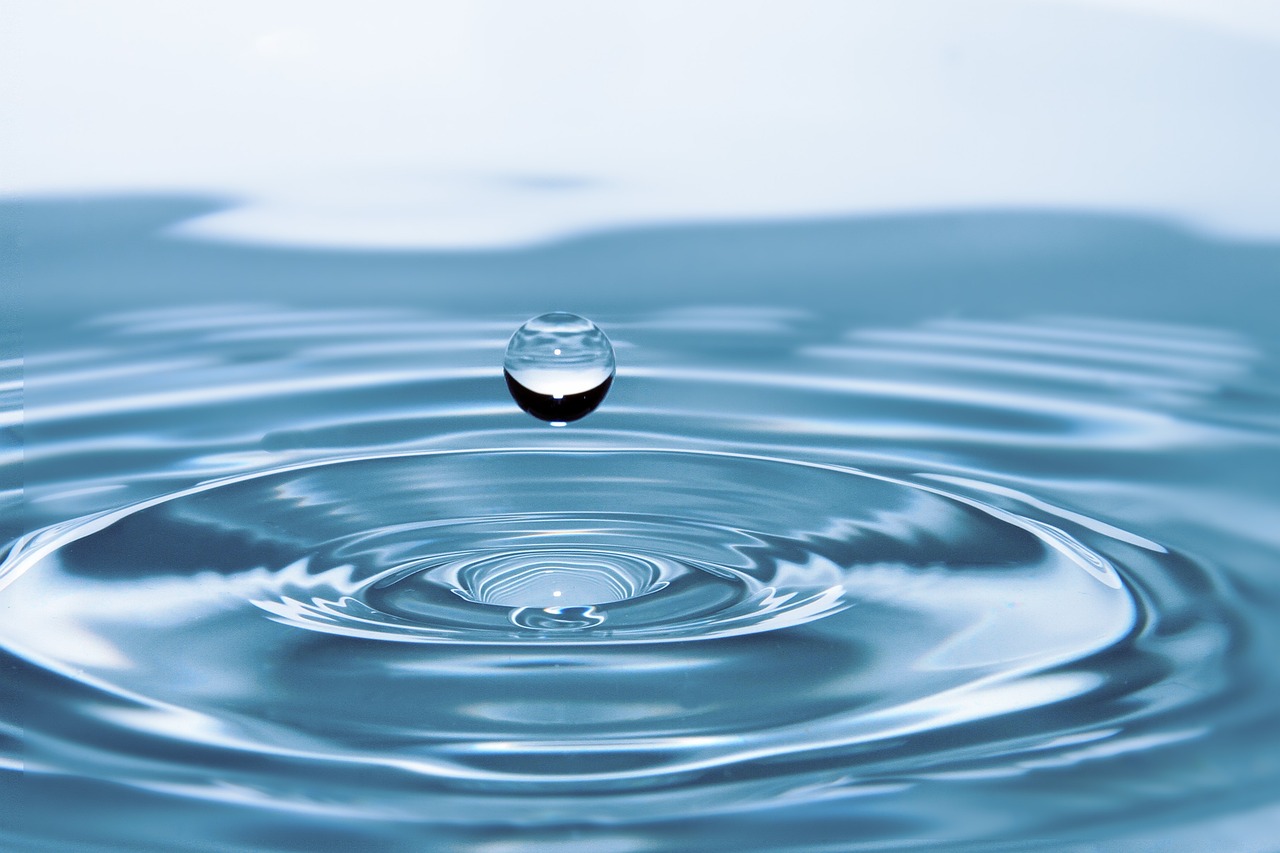This article delves into the profound effects of a 3-day water fast, highlighting the physical and mental transformations that can occur both during and after the fasting period. With insights from experts and practical advice, readers will gain a comprehensive understanding of what to expect.
What is a Water Fast?
A water fast is a period during which an individual abstains from all food and consumes only water. This practice is often undertaken for various reasons, including health benefits, spiritual growth, or personal challenges. Understanding the definition and purpose of a water fast is essential for grasping its potential benefits and risks.
Benefits of a 3-Day Water Fast
- Detoxification: One of the most significant advantages of a 3-day water fast is the detoxification process. The body utilizes this time to eliminate toxins and rejuvenate itself.
- Weight Loss: Many individuals experience weight loss during a water fast, primarily due to reduced caloric intake and increased fat oxidation.
- Mental Clarity: Enhanced mental clarity and focus are commonly reported benefits, as the brain may function more efficiently without the distraction of digesting food.
Detoxification Process
During a water fast, the body enters a phase of detoxification, where it begins to cleanse itself of accumulated toxins. This process not only promotes overall health but also encourages the body to reset its metabolic processes.
Cellular Repair Mechanisms
Fasting triggers a process known as autophagy, where cells repair and regenerate themselves. This biological mechanism highlights the regenerative effects of a water fast on cellular health, potentially leading to improved longevity and vitality.
Reduction of Inflammation
Research indicates that water fasting may aid in reducing inflammation levels in the body. Lower inflammation can lead to various health benefits, including decreased risk of chronic diseases.
Mental Clarity and Focus
Many individuals report heightened mental clarity during a water fast. This phenomenon can be attributed to various factors, including increased production of brain-derived neurotrophic factor (BDNF), which supports cognitive function.
Preparing for a 3-Day Water Fast
Proper preparation is crucial for a successful water fast. Here are some essential steps to take:
- Consulting a Healthcare Professional: It is advisable to consult with a healthcare professional before starting a water fast to assess any potential risks.
- Gradual Dietary Changes: Making gradual changes to your diet leading up to the fast can ease the transition, making it easier to adapt to the fasting state.
What to Expect During the Fast
Understanding what happens during a 3-day water fast can help individuals prepare for the experience. Common physical symptoms include:
- Hunger Pangs: Initially, individuals may experience hunger, but this often diminishes after the first day.
- Fatigue: Some may feel fatigued or lethargic, especially in the beginning stages of the fast.
Mental and Emotional Changes
Fasting can lead to significant mental and emotional shifts. Many report feelings of clarity and calmness, while others may experience emotional fluctuations as their body adjusts to the fasting state.
Post-Fast Recovery: What to Eat
Recovering from a water fast is essential for safely reintroducing food. Properly breaking the fast is crucial to avoid digestive issues.
- Breaking the Fast Safely: Gradually reintroducing food is vital. Start with light, easily digestible foods such as broths or smoothies.
- Recommended Foods for Recovery: Incorporate fruits, vegetables, and whole grains to promote digestive health and support recovery.

What is a Water Fast?
A water fast is defined as a period during which an individual abstains from all food and beverage, consuming only water. This practice has gained popularity for its potential health benefits, as well as its role in various traditional and modern wellness approaches. Understanding the intricacies of a water fast is crucial for anyone considering this method, as it can lead to significant physical and mental transformations.
During a water fast, the body enters a state of ketosis, where it begins to utilize fat stores for energy instead of carbohydrates. This metabolic shift can result in weight loss and may also enhance the body’s natural detoxification processes. By refraining from food, individuals give their digestive systems a much-needed break, allowing for cellular repair and regeneration.
Furthermore, fasting can stimulate autophagy, a process where the body cleans out damaged cells and regenerates new ones. This cellular rejuvenation is essential for maintaining overall health and may contribute to longevity. Many proponents of water fasting highlight its role in reducing inflammation, which is linked to various chronic diseases.
It is important to note that while water fasting can offer numerous benefits, it is not without its risks. Individuals with certain health conditions, such as diabetes or eating disorders, should consult a healthcare professional before attempting a water fast. Additionally, the initial days of fasting can be challenging, often accompanied by symptoms such as headaches, fatigue, and irritability as the body adjusts to the absence of food.
As individuals prepare for a water fast, understanding what to expect can help in managing the experience. Many report increased mental clarity and focus during the fast, attributed to the body’s shift in energy sources and the absence of food-related distractions. This heightened state of awareness can be a motivating factor for those looking to enhance their cognitive function.
To successfully undertake a water fast, proper preparation is essential. Gradual dietary adjustments leading up to the fast can ease the transition, allowing the body to adapt more comfortably. It is advisable to consult with a healthcare professional to assess individual health conditions and ensure that fasting is a safe option.
In summary, a water fast is a powerful tool for those seeking to improve their health through detoxification and weight loss. However, understanding its implications, including potential side effects and the importance of preparation, is vital for a safe and effective fasting experience.

Benefits of a 3-Day Water Fast
Engaging in a 3-day water fast can yield multiple health benefits that are worth exploring. This fasting method involves consuming nothing but water for a period of three days, allowing the body to undergo significant changes. The following sections delve into the key advantages of this practice, helping individuals assess whether this fasting approach aligns with their health goals.
- Detoxification: One of the primary benefits of a 3-day water fast is the body’s ability to detoxify. By abstaining from food, the digestive system gets a much-needed break, allowing it to focus on eliminating toxins. This process can lead to improved organ function and a sense of overall well-being.
- Weight Loss: Many individuals turn to a water fast for weight loss. During the fasting period, the body shifts from using glucose for energy to burning fat stores, leading to a reduction in body weight. This can be particularly appealing for those looking to kickstart their weight loss journey.
- Improved Mental Clarity: A common report among those who undergo a water fast is enhanced mental clarity. As the body adapts to fasting, many experience a boost in cognitive function, which can lead to better focus and productivity.
These benefits highlight the potential of a 3-day water fast to transform not only physical health but also mental well-being. Understanding these advantages can empower individuals to make informed decisions about their health practices.
During a water fast, the body initiates a detoxification process that aids in flushing out harmful substances. This cleansing effect is essential for maintaining optimal health, as it supports various bodily functions, including metabolism and immune response.
Another significant benefit of fasting is the activation of autophagy, a cellular repair mechanism. This process allows cells to remove damaged components, which contributes to improved cellular health and longevity. The regenerative effects of fasting can be profound, leading to enhanced vitality.
Research suggests that water fasting may play a role in reducing inflammation throughout the body. Chronic inflammation is linked to various health issues, including heart disease and diabetes. By mitigating inflammation, fasting can support overall health and reduce the risk of these conditions.
Many individuals report a marked improvement in mental clarity during a water fast. This phenomenon can be attributed to the body’s metabolic shift, which may enhance brain function. As blood sugar levels stabilize, cognitive processes often become sharper, allowing for heightened focus and creativity.
In summary, the benefits of a 3-day water fast encompass a range of physical and mental transformations. From detoxification and weight loss to improved mental clarity, this fasting method presents a unique opportunity for individuals seeking to enhance their health. By understanding these advantages, one can make an informed choice about whether a water fast is suitable for their lifestyle and health objectives.
Detoxification Process
During a 3-day water fast, the body initiates a powerful that plays a crucial role in eliminating accumulated toxins. This natural cleansing mechanism is not merely a side effect of fasting; rather, it is a fundamental aspect that contributes to overall health improvements.
When you abstain from food and consume only water, your body shifts its energy source from glucose to stored fat. This metabolic change triggers a series of physiological responses aimed at cleansing and rejuvenating the body. One of the primary benefits of this fasting period is the activation of autophagy, a cellular repair process that clears out damaged cells and regenerates new ones. This not only enhances cellular health but also improves the body’s ability to fight off diseases.
The detoxification process begins in the liver, where toxins are filtered out and neutralized. As you fast, your liver works efficiently to break down fat cells, releasing stored toxins into the bloodstream for elimination. This can lead to temporary symptoms, such as headaches or fatigue, as the body adjusts to the absence of food and begins to expel these toxins. However, these symptoms are often short-lived and are a sign that the detoxification process is underway.
Furthermore, fasting can help reduce inflammation in the body. Chronic inflammation is linked to numerous health conditions, including heart disease and autoimmune disorders. By engaging in a water fast, individuals may experience a significant reduction in inflammatory markers, leading to improved overall health and well-being.
Another important aspect of detoxification during a water fast is the improvement of gut health. The absence of food allows the digestive system to rest and reset, which can enhance gut microbiome diversity. A healthy gut microbiome is essential for optimal digestion and nutrient absorption, further contributing to the body’s detoxification efforts.
In addition to physical benefits, the mental clarity experienced during a water fast is noteworthy. Many individuals report heightened focus and cognitive function, which can be attributed to the body’s shift away from digesting food to prioritizing essential bodily functions, including detoxification.
To maximize the benefits of detoxification during a water fast, it is essential to stay well-hydrated. Drinking adequate amounts of water helps facilitate the flushing out of toxins and supports the kidneys in their filtering processes. Experts recommend consuming at least 2 to 3 liters of water daily during the fast.
In summary, the detoxification process that occurs during a 3-day water fast is a multifaceted phenomenon that promotes not only physical cleansing but also enhances mental clarity and overall health. By understanding the mechanisms involved, individuals can make informed decisions about incorporating fasting into their wellness routines.
Cellular Repair Mechanisms
Fasting is a powerful biological process that has garnered attention for its potential health benefits, particularly in the realm of cellular repair. One of the most significant mechanisms triggered during fasting is autophagy, a natural process where cells cleanse themselves by removing damaged components and regenerating new cellular structures. This fascinating phenomenon plays a crucial role in maintaining cellular health and functionality.
During a water fast, the body enters a state of ketosis, where it begins to utilize fat stores for energy instead of glucose. This metabolic shift not only fuels the body but also initiates autophagy. As cells experience nutrient deprivation, they activate pathways that promote the breakdown of dysfunctional proteins and organelles, effectively recycling cellular components. This process is vital for cellular homeostasis, allowing cells to adapt to stress and maintain their integrity.
The regenerative effects of autophagy are profound. Research suggests that enhanced autophagy can lead to improved cellular longevity and reduced risk of age-related diseases. By clearing out damaged cellular material, autophagy can mitigate the accumulation of harmful substances that contribute to conditions such as neurodegenerative diseases, cancer, and metabolic disorders. In this way, fasting serves as a catalyst for cellular rejuvenation.
Moreover, the benefits of autophagy extend beyond mere cellular repair. It is also linked to improved immune function. During fasting, the body can prioritize the removal of senescent cells—those that have lost their ability to divide and function properly. By reducing the burden of these cells, the immune system can operate more efficiently, enhancing its ability to combat infections and diseases.
In addition to the cellular benefits, many individuals report experiencing enhanced mental clarity during fasting. This may be attributed to the neuroprotective effects of autophagy, which can promote brain health by reducing inflammation and oxidative stress. As the brain undergoes a similar cleansing process, cognitive function may improve, leading to sharper focus and better decision-making abilities.
It is essential to approach fasting with caution and awareness. While the regenerative effects of autophagy are promising, not everyone may be suited for extended fasting periods. Individuals with underlying health conditions or those taking specific medications should consult with a healthcare professional before embarking on a fasting regimen.
To maximize the benefits of autophagy during a water fast, it is advisable to prepare adequately. This includes gradually reducing food intake and ensuring proper hydration. Post-fast recovery is equally important; reintroducing food slowly and opting for nutrient-dense options can support the body’s transition back to regular eating patterns while continuing to promote cellular health.
In conclusion, understanding the mechanisms behind cellular repair during fasting, particularly through autophagy, can shed light on the transformative effects of a 3-day water fast. By embracing this ancient practice, individuals may unlock significant health benefits that extend beyond the physical realm, enhancing both body and mind.
Reduction of Inflammation
Water fasting has gained popularity not only for its potential to promote weight loss but also for its significant impact on inflammation reduction. Understanding how a 3-day water fast can lower inflammation levels in the body is essential for recognizing its broader health benefits.
Inflammation is the body’s natural response to injury or infection, but chronic inflammation can lead to various health issues, including heart disease, diabetes, and autoimmune disorders. By reducing inflammation, individuals may experience a myriad of health improvements, enhancing their overall quality of life.
- Improved Immune Function: Lowering inflammation can help the immune system function more effectively. A well-functioning immune system can better combat infections and diseases.
- Enhanced Joint Health: Many people suffer from inflammatory conditions such as arthritis. Water fasting may alleviate joint pain and stiffness, providing relief for those affected.
- Cardiovascular Benefits: Reducing inflammation can lead to improved heart health. Studies suggest that lower inflammation levels are associated with a reduced risk of heart disease.
- Better Mental Health: Chronic inflammation has been linked to mental health issues like depression and anxiety. Fasting may reduce these inflammatory markers, potentially leading to improved mood and cognitive function.
Research indicates that fasting triggers a process called autophagy, where the body cleans out damaged cells and regenerates new ones. This cellular repair mechanism not only aids in reducing inflammation but also promotes overall health and longevity.
During a water fast, the body shifts its energy source from glucose to ketones, which can have anti-inflammatory effects. This metabolic switch is crucial for understanding how fasting influences inflammation levels. As the body adapts to using ketones, it may reduce the production of pro-inflammatory cytokines, leading to a decrease in inflammation.
Furthermore, many individuals report experiencing less pain and discomfort during and after a water fast. This relief can be attributed to the reduction of inflammatory markers in the body, allowing for improved mobility and a greater sense of well-being.
It’s essential to approach water fasting with caution and to consult a healthcare professional before beginning. While the potential benefits of reduced inflammation are significant, individual responses to fasting can vary. Proper guidance ensures that fasting is done safely, maximizing its benefits while minimizing risks.
In summary, the reduction of inflammation through water fasting can lead to several health benefits, including improved immune function, enhanced joint health, cardiovascular advantages, and better mental well-being. By understanding these connections, individuals can make informed decisions about incorporating fasting into their health routines.
Mental Clarity and Focus
During a water fast, many individuals experience a notable increase in mental clarity and focus. This phenomenon can be attributed to several physiological and psychological factors that unfold during the fasting period. Understanding these factors can provide insights into how fasting not only affects the body but also enhances cognitive functions.
One of the primary reasons for improved mental clarity during a water fast is the reduction in insulin levels. When food intake ceases, insulin production decreases significantly. Lower insulin levels allow the body to shift from using glucose as its primary energy source to utilizing ketones, which are produced from fat. Ketones are known to provide a more stable energy source for the brain, leading to enhanced cognitive function and focus.
Additionally, fasting triggers the release of neurotransmitters such as norepinephrine and dopamine. These chemicals play a crucial role in mood regulation, attention, and motivation. As individuals fast, the increase in these neurotransmitters can lead to heightened alertness and improved mood, which can contribute to better concentration and mental performance.
Another aspect to consider is the impact of fasting on brain-derived neurotrophic factor (BDNF). Fasting has been shown to elevate BDNF levels, a protein that supports the survival of existing neurons and encourages the growth of new neurons and synapses. This process is vital for learning, memory, and overall cognitive health. Higher levels of BDNF can result in improved mental clarity and enhanced cognitive abilities.
Moreover, fasting often leads to a mindful state as individuals become more attuned to their bodies and thoughts. The absence of food can create a space for introspection, allowing for greater awareness and focus on tasks at hand. Many people report a sense of mental calmness and clarity that is often absent in their daily routine filled with distractions and constant stimuli.
It’s also worth noting the role of autophagy, a process activated during fasting where the body cleans out damaged cells and regenerates new ones. This cellular repair is not only crucial for physical health but also contributes to improved brain function. The brain, being a highly metabolically active organ, benefits from this rejuvenation, leading to potential improvements in memory and cognitive performance.
In summary, the enhanced mental clarity and focus experienced during a water fast can be linked to various biological processes, including reduced insulin levels, increased neurotransmitter activity, elevated BDNF levels, and the promotion of mindfulness. These factors combined create an environment conducive to improved cognitive performance. As more individuals seek to understand the benefits of fasting, recognizing its potential impact on mental health becomes increasingly important.

Preparing for a 3-Day Water Fast
Proper preparation is crucial for a successful water fast. Engaging in a 3-day water fast can yield transformative results, but it requires careful planning to ensure safety and effectiveness. Below, we outline essential steps to take before starting the fasting process.
- Consult a Healthcare Professional: Before beginning a water fast, it is advisable to consult with a healthcare professional. This is especially important for individuals with pre-existing health conditions, as medical guidance can help assess risks and ensure that fasting is a safe option.
- Educate Yourself: Understanding the principles of water fasting is key. Research the potential benefits, risks, and what to expect during the fasting period. Knowledge empowers you to make informed decisions.
- Gradual Dietary Changes: Transitioning your diet gradually in the days leading up to the fast can help your body adjust. Start by reducing your intake of processed foods, sugars, and heavy meals. Instead, focus on consuming whole foods such as fruits, vegetables, and lean proteins.
- Stay Hydrated: In the days prior to your fast, ensure you are drinking plenty of water. Staying well-hydrated will prepare your body for the fasting period and help mitigate feelings of hunger and fatigue.
- Plan Your Schedule: Choose a time for your fast when you can minimize stress and commitments. A long weekend or a period of low activity can be ideal, as it allows you to focus on the fasting experience.
- Prepare Mentally: Fasting is not just a physical challenge; it is also a mental one. Take time to mentally prepare yourself for the experience. Consider journaling your intentions and setting goals for what you hope to achieve during the fast.
- Gather Support: Inform friends or family about your fasting plans. Having a support system can provide encouragement and accountability, making the experience more manageable.
- Stock Up on Essentials: Ensure you have enough clean, filtered water available for the duration of your fast. Additionally, consider having herbal teas or electrolyte supplements on hand to help maintain hydration levels.
By following these essential steps, you can set yourself up for a successful 3-day water fast. Proper preparation not only enhances the effectiveness of the fast but also promotes a safer and more rewarding experience. Remember, the journey of fasting is as much about self-discovery as it is about physical benefits, so approach it with an open mind and heart.
Consulting a Healthcare Professional
Before starting a 3-day water fast, it is crucial to seek guidance from a healthcare professional. This consultation plays a vital role in ensuring that the fasting process is safe and appropriate for your individual health circumstances. Water fasting, while beneficial for many, can pose risks for certain individuals, particularly those with underlying health conditions.
During the consultation, your healthcare provider will assess your medical history and current health status. They may ask questions about any existing health issues, medications you are taking, and your overall lifestyle. This thorough evaluation helps identify potential risks associated with fasting, such as dehydration, electrolyte imbalances, or exacerbation of chronic conditions.
Moreover, a healthcare professional can provide tailored advice on how to prepare for the fast effectively. This may include recommendations for gradual dietary changes prior to the fast, which can help your body adjust and minimize discomfort during the fasting period. For instance, they might suggest reducing caffeine intake or avoiding heavy meals in the days leading up to the fast.
Another important aspect of the consultation is understanding the psychological impact of fasting. Some individuals may experience heightened emotions or anxiety during a fast. A healthcare provider can offer strategies to manage these feelings and ensure that you are mentally prepared for the fasting experience.
It’s also essential to discuss your goals for the water fast. Whether you aim for detoxification, weight loss, or improved mental clarity, your healthcare provider can help set realistic expectations and ensure that your goals align with your health status.
In summary, consulting with a healthcare professional before embarking on a water fast is not just advisable; it is a critical step in ensuring a safe and effective fasting experience. Their expertise can help you navigate the complexities of fasting, allowing you to reap the benefits while minimizing potential risks.
- Assess Medical History: Evaluate any existing health issues.
- Medication Review: Discuss current medications and their effects.
- Personalized Advice: Receive tailored guidance for preparation.
- Goal Setting: Align fasting goals with health status.
- Psychological Support: Learn strategies to manage emotional responses.
By prioritizing a consultation with a healthcare professional, you are taking a significant step towards a successful and transformative water fasting experience.
Gradual Dietary Changes
Preparing for a water fast requires careful planning, particularly when it comes to your diet. can significantly ease the transition into fasting, helping your body adjust and reducing potential discomfort. This section will provide practical tips on how to adjust your eating habits effectively before starting your fast.
First and foremost, it is essential to reduce your caloric intake gradually. Instead of abruptly cutting out food, aim to lower your daily calorie consumption over a week or two leading up to the fast. This can help your body adapt to the idea of consuming less and prepare for the fasting period. For instance, if you typically consume 2,000 calories a day, try reducing it to 1,800 for a few days, then to 1,600, and so on.
In addition to decreasing caloric intake, consider eliminating processed foods and sugars from your diet. These foods can cause spikes in blood sugar levels, leading to increased cravings and discomfort during the fast. Instead, focus on incorporating whole foods such as fruits, vegetables, whole grains, and lean proteins. This not only helps stabilize your blood sugar but also provides your body with the necessary nutrients it needs as you prepare for the fast.
- Increase Hydration: Begin drinking more water in the days leading up to your fast. Staying well-hydrated can help reduce feelings of hunger and prepare your body for a period without food.
- Practice Smaller Portions: Start eating smaller meals more frequently throughout the day. This can help your stomach adjust to less food and minimize discomfort when you begin fasting.
- Incorporate Easy-to-Digest Foods: Focus on foods that are gentle on your digestive system, such as soups and smoothies. These can help your body transition more smoothly into the fasting state.
Another effective strategy is to gradually increase the time between meals. If you usually eat every few hours, try extending that period to four or five hours. This practice can help your body get used to longer intervals without food, making the fasting period feel less daunting.
Additionally, consider mindful eating. Pay attention to your hunger cues and eat only when you are truly hungry. This practice can help you distinguish between emotional eating and genuine hunger, which is particularly important during a fast.
Finally, it is crucial to listen to your body throughout this process. If you experience significant discomfort or negative symptoms, it may be wise to adjust your approach or consult a healthcare professional for personalized advice.
By making these gradual dietary changes, you can set yourself up for a more successful and comfortable fasting experience. Remember, preparation is key to maximizing the benefits of your 3-day water fast.

What to Expect During the Fast
Embarking on a 3-day water fast can be both an enlightening and challenging experience. Understanding the physical and emotional changes that occur during this period is crucial for anyone considering this fasting approach. This section delves into the common responses individuals may encounter, helping to set realistic expectations.
Physical Symptoms
During a water fast, the body undergoes a series of physiological changes as it adapts to the absence of food. Here are some common physical symptoms you might experience:
- Hunger Pangs: Initially, you may experience intense cravings for food, particularly in the first 24 to 48 hours. This is a normal response as your body adjusts to fasting.
- Fatigue: As your body shifts from using glucose for energy to burning fat, you might feel tired or lethargic.
- Headaches: Some individuals report headaches, especially if they are used to regular caffeine intake.
- Dizziness: A drop in blood sugar levels can cause feelings of lightheadedness.
- Detox Symptoms: As the body begins to eliminate toxins, you may experience symptoms like nausea or irritability.
While these symptoms can be uncomfortable, they often subside as the fast progresses, and many individuals report an increase in energy levels after the initial adjustment period.
Mental and Emotional Changes
Fasting is not just a physical challenge; it can also lead to significant mental and emotional shifts. Understanding these changes can help you navigate the psychological landscape of a water fast:
- Heightened Awareness: Many people experience increased mental clarity and focus as their bodies detoxify, leading to a heightened sense of awareness.
- Emotional Fluctuations: You may encounter emotional ups and downs, ranging from irritability to feelings of euphoria. This can be attributed to hormonal changes and the psychological effects of fasting.
- Introspection: Fasting often provides an opportunity for deep reflection, allowing individuals to confront personal issues or thoughts that may have been suppressed.
- Sense of Accomplishment: Successfully completing a fast can foster a sense of achievement and boost self-esteem.
It’s essential to approach these emotional changes with an open mind and to practice self-compassion during the fasting process. Keeping a journal may help you document your feelings and thoughts, providing valuable insights into your personal journey.
In summary, understanding what to expect during a 3-day water fast can significantly enhance your experience. By being aware of the physical symptoms and emotional changes, you can prepare yourself mentally and physically for the challenges ahead. Remember, every individual’s experience may differ, and listening to your body is key to navigating this transformative journey.
Physical Symptoms
During a 3-day water fast, individuals may encounter a range of that are both challenging and enlightening. Understanding these sensations can help prepare for the experience and manage expectations. Below are some of the common physical symptoms one might face during this fasting period.
- Hunger Pangs: One of the most immediate sensations is the onset of hunger pangs. These are often sharp and can vary in intensity, particularly during the first couple of days as the body adjusts to the absence of food. It’s essential to recognize that these sensations are a natural response as your body shifts from a fed to a fasted state.
- Fatigue: Many individuals report feeling fatigued during a water fast. This fatigue can stem from reduced caloric intake and changes in metabolism. It is crucial to listen to your body during this time and allow for rest as needed.
- Headaches: Headaches are another common symptom, often linked to caffeine withdrawal if one typically consumes caffeinated beverages. Staying hydrated with water can help alleviate some of this discomfort.
- Dizziness: Some may experience feelings of dizziness or lightheadedness, particularly when standing up quickly. This can be a result of low blood sugar levels or dehydration, emphasizing the importance of adequate water intake.
- Digestive Changes: As the body enters a fasting state, individuals might notice changes in their digestive system, including reduced bowel movements or even constipation. This is a normal response as the body conserves energy and shifts its focus away from digestion.
- Increased Thirst: Naturally, the body will signal an increase in thirst as it requires more water during fasting. Staying hydrated is vital not only for physical comfort but also for maintaining overall health throughout the fast.
- Cold Sensitivity: Some people report feeling colder than usual during a fast. This can be attributed to a decrease in metabolic rate as the body conserves energy. Dressing warmly can help manage this symptom.
- Improved Sense of Taste: Interestingly, many individuals notice a heightened sense of taste after fasting. Food flavors may seem more intense and enjoyable once they break the fast.
These physical symptoms are part of the body’s natural response to fasting, reflecting the process of adaptation and detoxification. While the experience can be challenging, it’s essential to approach it with mindfulness and preparation. By understanding these sensations, individuals can better navigate their fasting journey and appreciate the transformative effects it can have on both body and mind.
Mental and Emotional Changes
Fasting, particularly a prolonged water fast, can induce profound mental and emotional changes that may enhance overall well-being. As individuals abstain from food, they often experience a range of psychological effects that can be both challenging and transformative.
One of the most notable changes during fasting is a shift in mental clarity. Many people report heightened focus and concentration, attributing this to the absence of digestive distractions. When the body is not preoccupied with processing food, cognitive resources can be redirected towards mental tasks. This phenomenon is often linked to the release of ketones, a byproduct of fat metabolism that serves as an efficient energy source for the brain.
Additionally, fasting can foster a sense of mindfulness. As individuals become more aware of their hunger cues and emotional responses, they may develop a deeper understanding of their relationship with food. This awareness can lead to healthier eating habits post-fast, as individuals learn to differentiate between physical hunger and emotional cravings.
However, fasting can also trigger emotional fluctuations. The initial days of a water fast may be marked by irritability, mood swings, and anxiety. These feelings can stem from both physiological changes, such as fluctuations in blood sugar levels, and psychological factors, including the stress of abstaining from food. Recognizing these potential emotional challenges is crucial for those undertaking a fast.
Moreover, fasting can serve as a catalyst for self-reflection. The quiet moments often experienced during fasting can lead to introspection, allowing individuals to confront and process their thoughts and feelings. This can result in greater emotional resilience and a clearer understanding of personal goals and values.
Another psychological effect of fasting is the potential for a spiritual awakening. Many individuals report feeling more connected to their spiritual beliefs or a sense of purpose during fasting. This can be attributed to the discipline required to abstain from food, which may foster a deeper connection to one’s inner self or higher power.
In conclusion, while fasting can lead to significant mental and emotional shifts, it is essential to approach it with awareness and preparation. Individuals should be mindful of the psychological effects that may arise and be equipped with strategies to cope with emotional challenges. Embracing the journey of fasting can ultimately lead to enhanced mental clarity, emotional resilience, and a more profound understanding of oneself.

Post-Fast Recovery: What to Eat
Recovering from a water fast is a critical phase that requires careful attention to ensure a smooth transition back to solid foods. After a period of abstaining from all food, your digestive system needs time to readjust. This section provides comprehensive guidance on what foods to consume after completing a fast, ensuring that you nourish your body appropriately.
When you complete a water fast, your body undergoes significant changes. It is essential to reintroduce food gradually to prevent digestive distress and to support your body’s healing processes. The recovery phase is not just about eating again; it is about making informed choices that will maximize the benefits of your fasting experience.
To break your fast safely, consider the following steps:
- Start with Liquids: Begin with clear broths or diluted fruit juices. This helps to ease your digestive system back into processing food.
- Introduce Soft Foods: After a day of liquids, you can introduce soft, easily digestible foods such as mashed bananas, applesauce, or yogurt.
- Gradually Progress: Over the next few days, gradually add more solid foods, focusing on simple, whole foods that are low in sugar and fat.
Choosing the right foods after your fast is vital for a successful recovery. Here are some recommended options:
| Food Type | Benefits |
|---|---|
| Bone Broth | Rich in nutrients and easy on the stomach, bone broth helps to heal the gut lining. |
| Fruits | High in water content and vitamins, fruits like watermelon and oranges can rehydrate and replenish nutrients. |
| Vegetables | Steamed or boiled vegetables provide fiber and essential vitamins without overwhelming the digestive system. |
| Fermented Foods | Foods like yogurt and sauerkraut contain probiotics that support gut health and aid digestion. |
| Whole Grains | Brown rice or quinoa can be introduced gradually, providing energy and fiber. |
Throughout the recovery process, it is crucial to listen to your body. Pay attention to how you feel as you reintroduce foods. If you experience discomfort, consider scaling back to simpler foods and progressing more slowly. Hydration remains important, so continue to drink plenty of water during this phase.
Consider spacing your meals throughout the day to avoid overwhelming your digestive system. Smaller, more frequent meals can help your body adjust more comfortably. Aim for three to five small meals daily, focusing on nutrient-dense options.
In conclusion, the post-fast recovery phase is a critical time to nourish your body properly. By following these guidelines and making mindful food choices, you can enhance your well-being and maximize the benefits of your water fast.
Breaking the Fast Safely
Breaking a fast safely is an essential aspect of the fasting experience, particularly after a 3-day water fast. The body undergoes significant changes during fasting, and reintroducing food improperly can lead to various digestive issues. This section provides comprehensive guidance on how to break your fast safely and effectively.
When you complete a water fast, your digestive system has had a prolonged period of rest. Therefore, it is crucial to approach the reintroduction of food with care. Here are some key tips to ensure a smooth transition back to regular eating:
- Start with Liquids: Begin by consuming clear liquids such as broth or diluted fruit juices. This gentle approach helps to wake up your digestive system without overwhelming it.
- Introduce Soft Foods: After a day or two of liquids, consider adding soft foods like mashed bananas or applesauce. These options are easy to digest and provide essential nutrients.
- Eat Small Portions: It’s important to start with small portions to see how your body reacts. Gradually increase the amount as your digestive system adapts.
- Focus on Nutrient-Dense Foods: Incorporate foods rich in nutrients, such as steamed vegetables, whole grains, and lean proteins. These foods will help replenish your body without causing digestive distress.
- Avoid Processed Foods: Steer clear of heavy, processed, or fried foods initially. These can be harsh on your digestive system and may lead to discomfort.
Additionally, consider the following important practices when breaking your fast:
- Listen to Your Body: Pay attention to how your body responds to the reintroduction of food. If you experience discomfort, slow down and give yourself more time before consuming solid foods.
- Stay Hydrated: Continue to drink plenty of water during the recovery phase. Staying hydrated is crucial for digestion and overall health.
- Monitor Your Energy Levels: After breaking your fast, you may experience fluctuations in energy. It’s normal, but ensure you are consuming balanced meals to stabilize your energy levels.
To maximize the benefits of your fast and support your recovery, consider the following recommended foods:
| Food Type | Benefits |
|---|---|
| Bone Broth | Rich in nutrients and easy on the digestive system. |
| Steamed Vegetables | Provides essential vitamins and minerals while being gentle on the stomach. |
| Fruits | High in water content and natural sugars, aiding in hydration and energy. |
| Quinoa or Brown Rice | Complex carbohydrates that are filling and nutritious. |
| Lean Proteins (like chicken or fish) | Helps in muscle recovery and provides essential amino acids. |
By following these guidelines, you can effectively break your fast and support your body’s transition back to regular eating. Remember, patience is key, and taking the time to carefully reintroduce food can enhance the overall benefits of your fasting experience.
Recommended Foods for Recovery
After completing a 3-day water fast, it is crucial to reintroduce food in a manner that supports your body’s recovery and promotes digestive health. The transition back to solid foods should be gradual and mindful. Below is a list of recommended foods that can aid in your recovery process.
- Bone Broth: Rich in nutrients and easily digestible, bone broth provides essential minerals and helps restore gut health.
- Fresh Fruits: Start with soft fruits like watermelon or banana, which are hydrating and gentle on the stomach.
- Cooked Vegetables: Opt for steamed or boiled vegetables such as zucchini and carrots, which are easier to digest compared to raw options.
- Fermented Foods: Foods like yogurt, kimchi, and sauerkraut are excellent for replenishing gut bacteria and enhancing digestive function.
- Whole Grains: Gradually introduce whole grains like quinoa or brown rice, which provide fiber and energy without overwhelming the digestive system.
- Lean Proteins: Incorporate easily digestible proteins such as chicken or fish to help rebuild muscle and support overall recovery.
- Nuts and Seeds: Start with small amounts of chia seeds or almonds, which provide healthy fats and protein but should be consumed in moderation initially.
It is important to listen to your body during this recovery phase. Here are some additional tips to ensure a smooth transition:
1. Start with small portions to avoid overwhelming your digestive system.2. Stay hydrated by drinking plenty of water alongside your meals.3. Avoid processed foods, sugars, and heavy meals for the first few days post-fast.4. Monitor your body's reactions to different foods and adjust accordingly.
By choosing the right foods and taking a gradual approach, you can enhance your recovery experience after a water fast. This not only supports your digestive health but also helps in maintaining the benefits you gained during the fasting period.
Frequently Asked Questions
- What should I drink during a water fast?
During a water fast, it’s essential to consume only water. You can choose plain water, mineral water, or herbal teas without any additives. Staying hydrated is key to managing hunger and maintaining energy levels!
- Can I exercise while fasting?
While light exercise like walking is generally okay, it’s best to avoid intense workouts during a 3-day water fast. Your body will be low on energy, and strenuous activities might lead to fatigue or dizziness. Listen to your body!
- How do I break my fast safely?
Breaking your fast should be done gradually. Start with small portions of easily digestible foods, like broth or fruit juices. Avoid heavy meals right away to prevent digestive discomfort!
- What are the common side effects of a water fast?
Some common side effects include hunger pangs, fatigue, and irritability. These symptoms usually subside as your body adjusts. Remember, everyone’s experience can be different, so stay tuned into how you feel!
- Is a 3-day water fast safe for everyone?
No, a 3-day water fast may not be suitable for everyone. It’s crucial to consult a healthcare professional before starting, especially if you have underlying health conditions or are pregnant.












